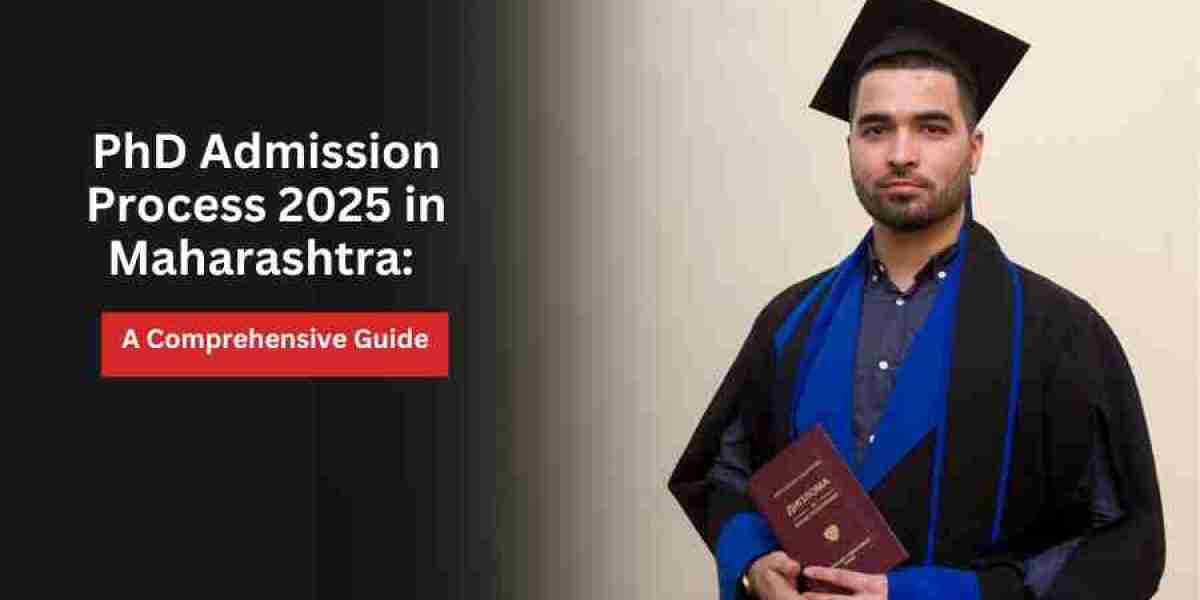Pursuing a PhD is a major academic achievement that requires dedication, rigorous research, and a deep commitment to a specific field of study. For those interested in taking the leap into doctoral education, Maharashtra is home to numerous universities and research institutes that offer PhD programs across various disciplines. The PhD admission process for the year 2025 is expected to be highly competitive, with a focus on academic excellence, research potential, and personal motivation.
This blog will cover the key elements of the PhD admission process for 2025 in Maharashtra, including the eligibility criteria, the entrance exam, the application process, and the steps involved in securing a seat in a doctoral program.
1. Overview of PhD Programs in Maharashtra
Maharashtra is one of the leading states in India in terms of higher education, with prominent universities such as the University of Mumbai, Savitribai Phule Pune University, and Shivaji University, along with various prestigious institutes like the Indian Institute of Technology (IIT) Bombay and Tata Institute of Social Sciences (TISS). These institutions offer diverse PhD programs in subjects ranging from engineering and sciences to humanities, social sciences, and management.
PhD programs in Maharashtra generally span 3-5 years, depending on the discipline and the nature of the research. The course involves a combination of coursework, research proposal submission, comprehensive exams, and the submission of a final dissertation or thesis.
2. Eligibility Criteria for PhD Admission in Maharashtra (2025)
Before applying for a PhD program in Maharashtra, it is essential to meet the eligibility criteria set by the respective institutions. The general eligibility requirements are as follows:
Educational Qualification:
Master’s Degree: Candidates must have completed a Master's degree in the relevant field with at least 55% marks (or equivalent CGPA) from a recognized university. For reserved category candidates (SC/ST/OBC), the minimum marks requirement may be relaxed (usually by 5%).
MPhil: Some institutions may also consider candidates who have completed an MPhil program.
Age Limit:
Most universities do not impose an age limit for PhD admissions, although some institutes may have specific age-related guidelines, particularly for reserved category applicants.
Research Proposal:
Many universities expect applicants to submit a research proposal along with their application, outlining the intended research topic, objectives, methodology, and the expected contribution to the field of study. This is a crucial part of the application, as it demonstrates the applicant’s research potential and alignment with the university’s academic goals.
Entrance Exam and Interview:
In addition to academic qualifications, most universities in Maharashtra conduct an entrance exam to assess the applicant’s research aptitude and subject knowledge. The entrance exam may be followed by an interview to evaluate the candidate's research interests and suitability for the program.
3. PhD Entrance Exam in Maharashtra
The PhD entrance exam is a critical component of the admission process. In Maharashtra, most universities and institutes conduct their own entrance exams for PhD admissions, while others may accept scores from national-level exams such as UGC-NET (National Eligibility Test), GATE (for engineering disciplines), or CSIR-NET (for science disciplines).
Common PhD Entrance Exams:
University-Level Exams: Many universities in Maharashtra, like the University of Mumbai and Savitribai Phule Pune University, have their own PhD entrance exams. These exams generally consist of multiple-choice questions (MCQs) and subject-specific questions to test research aptitude, general knowledge, and subject expertise.
National-Level Exams: Candidates who have qualified for national exams like UGC-NET, CSIR-NET, or GATE may be exempted from the university-level entrance exam, depending on the policies of the institution.
Exam Pattern:
The PhD entrance exams typically consist of two parts:
Research Aptitude Test (RAT): This section tests the candidate's research ability, logical reasoning, and general awareness of research methodologies.
Subject-Specific Test: This part assesses the candidate’s knowledge in the chosen discipline, including key topics, recent advancements, and theoretical concepts.
After qualifying the entrance exam, shortlisted candidates are usually called for an interview or a written test based on their research proposal.
4. PhD Admission Process 2025 in Maharashtra
The process for PhD admission in Maharashtra generally follows these steps:
Step 1: Application Submission
Candidates must begin by submitting an online or offline application to the university or institute where they wish to pursue their PhD. The application typically includes personal details, academic qualifications, a research proposal, and any relevant documents (e.g., marksheets, certificates, etc.).
Step 2: Entrance Exam
After the application deadline, universities conduct entrance exams. Candidates are expected to appear for these exams on the specified date, and results are usually announced within a few weeks after the exam.
Step 3: Interview and Research Proposal Presentation
Candidates who clear the entrance exam are invited for an interview. The interview panel generally consists of faculty members from the respective department. During the interview, candidates are expected to present their research proposal, discuss their academic background, and demonstrate their motivation and aptitude for conducting research.
Step 4: Merit List and Final Selection
Based on the performance in the entrance exam and interview, a merit list is prepared. The final selection of candidates is made based on the merit list, subject to the availability of research supervisors in the chosen field.
Step 5: Document Verification and Fee Payment
Once selected, candidates must submit their original documents for verification. Upon successful verification, candidates are required to pay the admission fees and complete the registration process to formally enroll in the PhD program.
5. Important Documents for PhD Admission Application
Candidates applying for PhD programs in Maharashtra need to submit the following documents:
Educational qualification certificates (marksheets, degree certificates).
Valid ID proof (Aadhaar card, voter ID, etc.).
Caste certificate (if applicable).
Research proposal.
Passport-sized photographs.
UGC-NET/GATE/CSIR-NET scorecard (if applicable).
6. PhD Scholarships and Financial Assistance
Many universities and research institutes in Maharashtra offer scholarships, financial assistance, or fellowships to PhD students. The primary funding options available for PhD students include:
University Fellowships: Many institutions offer fellowships to full-time PhD scholars to support their living and research expenses.
UGC-NET Fellowships: Candidates who have qualified for UGC-NET may be eligible for junior research fellowship (JRF), which provides a monthly stipend for research.
Government Schemes: Various state and central government schemes are available for financially disadvantaged students to support their PhD research.
7. Research Opportunities and Areas of Study
Maharashtra boasts a wide range of research opportunities across multiple fields, including:
Science and Engineering: Institutes like IIT Bombay and the University of Pune offer cutting-edge research in fields such as engineering, computer science, biotechnology, and material science.
Social Sciences and Humanities: Universities like TISS and SNDT Women's University provide PhD programs in social work, sociology, education, and other social sciences.
Business and Management: Institutions like the University of Mumbai and Pune University offer PhD programs in business administration, economics, and management.
8. Conclusion
The PhD admission process for 2025 in Maharashtra offers a wealth of opportunities for aspiring researchers. From the eligibility requirements to the entrance exam, research proposal submission, and interview process, each step plays a crucial role in ensuring that only the most dedicated and capable candidates are selected.
It is important for prospective PhD candidates to research the specific requirements of the university or institute they wish to apply to, as the process can vary. Proper preparation for the entrance exam and interview, along with a well-thought-out research proposal, can significantly enhance the chances of securing a place in a prestigious PhD program.
Ultimately, pursuing a PhD is a challenging but highly rewarding endeavor, contributing to the academic and intellectual advancement of society.








